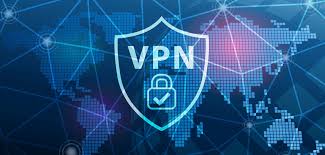What is a VPN?
 Gift Ayodele
Gift Ayodele
What is a VPN?
A VPN, or Virtual Private Network, is a tool that helps keep your online activities private and secure. Think of it as a protective tunnel that shields your data from prying eyes when you use the internet. When you connect to the internet through a VPN, your online traffic is encrypted, which means it’s turned into a code that’s difficult for others to read.
Why Use a VPN?
Privacy Protection: When you use a VPN, your internet service provider (ISP) can’t see what you’re doing online. This means that your browsing history and activities are kept private.
Security on Public Wi-Fi: Public Wi-Fi networks, like those in cafes or airports, can be risky. Cybercriminals often target these networks to steal personal information. A VPN encrypts your connection, making it much harder for anyone to access your data.
Access to Restricted Content: Some websites and streaming services limit access based on your location. With a VPN, you can connect to a server in a different country and appear as if you’re browsing from there. This allows you to access content that may be blocked in your region.
Avoiding Bandwidth Throttling: Some ISPs intentionally slow down your internet speed if they detect high data usage, like streaming or gaming. A VPN can help prevent this by hiding your activity from your ISP.
How Does a VPN Work?
Encryption: When you connect to a VPN, it creates a secure connection (or “tunnel”) between your device and the VPN server. Your data is encrypted before it leaves your device, which keeps it safe from anyone trying to intercept it.
IP Address Masking: A VPN changes your IP address, which is like your internet address. When you connect to a VPN server, it assigns you a new IP address from its location. This masks your real IP address and helps maintain your anonymity online.
Secure Data Transmission: The VPN server acts as a middleman between you and the internet. It sends your requests to websites and receives the responses, all while keeping your data secure.
Choosing the Right VPN
When selecting a VPN, consider the following:
Reputation and Reviews: Look for VPNs with positive reviews and a strong reputation for privacy and security.
No-Logs Policy: Ensure the VPN doesn’t keep records of your online activities. This is crucial for maintaining your privacy.
Speed and Performance: A good VPN should provide fast connection speeds without significant lag.
Ease of Use: Choose a VPN with a user-friendly interface, especially if you’re new to using such technology.
Conclusion
A VPN is an essential tool for anyone looking to enhance their online privacy and security. Whether you’re browsing at home or on public Wi-Fi, using a VPN can protect your personal information and give you access to a broader range of content. By understanding how VPNs work and the benefits they provide, you can make informed choices to stay safe online.
Subscribe to my newsletter
Read articles from Gift Ayodele directly inside your inbox. Subscribe to the newsletter, and don't miss out.
Written by
